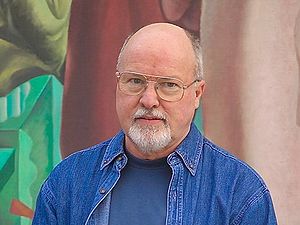The Christian Science Monitor published an opinion piece online March 24th, 2011. The piece is by Jonathan Merritt and entitled,”Evangelical shift on gays: Why ‘clobber scriptures’ are losing ground.”
I’ve been watching this shift over the last 20 odd years. I’m still amazed at the length certain anti-homosexual groups go to attempt to reinforce their positions, even while the arguments they use are constantly changing over time because their arguments of justification loose their persuasive force as the blanket exaggerations or misinformation of gay people become all too clear. It does them no good nor their argument when what they say no longer seems to line up with what more and more people are experiencing in their day-to-day lives.
They’ve lost the emerging generations, already. In Barna Group‘s research project that resulted in the book “unChristian,” one of their primary findings suggests that emerging young people find Christianity in the U.S. to be profoundly anti-homosexual, and it doesn’t jib well with their own beliefs or experiences.
(Now, I will say that much depends on how one defines “homosexual” or how one believes homosexuals think or act in the aggregate. The primarily Religious Right anti-homosexual groups try to persuade people that most all homosexuals are sex-crazed alcoholics who will just as soon molest your young son as have a coke at the corner dinner. Spreading this kind of misinformation is simply baring false-witness against a whole class of people, whether one believes those people need saving, healing, or death or not. As a Christian, I will say that much of what is presented as normative in the urban gay subculture by certain gay interests – hedonism – isn’t the kind of life that is conducive to our own personal best interests. But, the gay people involved in living their lives in such a way are no different than what I witnessed in my 20-years working in higher education with students who happen to be in the straight Greek system – unabashed hedonists.)
Back to the issue at hand and speaking of “clobber passages”… I’ve particularly noticed how Bible publishers have been dealing with the issue. As might be known, the term “homosexual” never appeared in an English Bible until the mid-to-late 1950’s – that’s approximate 450 years without such a term in English Bibles. Over the years, as their arguments against all forms of homosexual relationships continue to gain less traction, the anti-homosexual groups attempt to reinforce their position by becoming even more specific and detailed in their demand of and translation of Scripture to attempt to bolster their failing arguments.
For example, the length that the English Standard Bible goes to attempt to make specifically clear that the obscure Greek words found in I Corinthians 6:9 are absolutely about homosexuals, but not just homosexuals, but about men, and not just men, but in the footnote pertaining the to two Greek words, men who are the passive AND the active partners AND both giving consent. The ESV translates the Greek words, “nor men who practice homosexuality,” with the footnote clarifying the mean with, “The two Greek terms translated by this phrase refer to the passive and active partners in consensual homosexual acts.”
The King James version translates the words this way, “…nor effeminate, or abusers of themselves with mankind.” The New International Version translates the words this way, “…nor male prostitutes nor homosexual offenders.” The New American Standard Version translates the words this way, “…nor effeminate, nor homosexuals,” with the footnote specifying, “I.e., effeminate by perversion.” (How is one “effeminate by perversion?”)The New Revised Standard Version translates the words this way, “males prostitutes, sodomites…”
The truth is, whether it supports a socio-political position or agenda or not (conservative or liberal), we simply do not know what Paul meant. Yet, in order to tow the anti-homosexual line, Bible publishers cave into the demand by anti-gay Religious Right organizations to take a anti-gay stand in the translation of these words. (I Tim. 1:10, is another example) I’ve witnessed big campaigns that demand the Bible publishers publish the translation even more specific, as we witness in the EVS.
After all, we have to make the Bible absolutely specific in order to keep ignorant people from being deceived by Satan (through the liberal Bible “scholars”) trying to make homosexuality not a sin, make in normal and celebrated in the public mind, when we know that the end of this will be death and the end of Western Civilization by the punishing judgement of God. Right? You see why the anti-gay zealots have to exert a great deal of pressure on the Bible publishers to be absolutely specific that God condemns in no uncertain terms everything homosexual, whether we know the Greek words used by Paul actually mean “homosexuals” or not.
The problem, as the opinion piece details, these kinds of arguments are no longer persuading the emerging generations. It isn’t that the fags are winning in the deceiving of young, impressionable minds (although there is some truth in the assertion that the pro-gay message has more traction than the anti-gay message), but that the justifications and “proofs” for the anti-gay arguments are being shown to be fallacious.
I want to be clear, as a Christian and as a priest in this Church, our role and goal is not simply to affirm different groups of people, including homosexual people. Our goal is always and for everyone – everyone – the cause of Christ for salvation, reconciliation, and restoration calling us into such a life that we become free of so much within our world that binds us, deadens us, enslaves us, deceives us, and causes our lives to be separated from God and estranged form one another. This means that I call homosexual people as another other people into the reconciling relationship with God through Jesus Christ. This will transform us and cause us to be different – not tied up in knots by giving ourselves to the hedonistic culture. This does not mean, however, that homosexuals stop being homosexual. Gay or straight, we are called to be with God according to God’s ways and not simply according to the dictates of the prevailing culture or our own proclivities.
The anti-gay Religious Right will not win in their quest and crusade, because their positions cannot be sustained according to the truth that we know. Yet, they will become even more demanding and stringent as they lose influence, as their arguments fail. Unless, of course, as we are witnessing, people change their positions. This has already happened for the majority of younger people.











